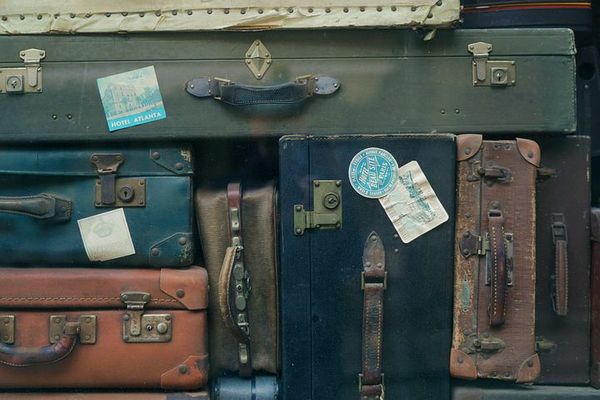3.2.2
Berlin Crisis & The Berlin Wall
The Berlin Crisis 1958-1963
The Berlin Crisis 1958-1963
Berlin and Germany had been a major source of contention and confrontations between the USSR and the West. In 1958, a number of factors pushed Khruschev into his decision to face the West over the issue of Berlin.


West Berlin undermined communism
West Berlin undermined communism
- Since 1955 many people from East Germany (GDR) migrated to West Germany due to better living conditions.
- Moscow came under much scrutiny due to this as the leaders of the GDR felt that they were losing their best and most skilled workers to the West.
- The scarcity of consumer goods in the East and the higher standard of living in the West made the USSR worry that the communist system could be undermined.


Khrushchev's security concerns
Khrushchev's security concerns
- Khrushchev worried about the security of the USSR.
- West Germany joined NATO in 1955 and Khrushchev was concerned that the USA could place nuclear weapons there.
- Khrushchev was also concerned by events in Poland and Hungary; both uprisings showed that the communists potentially didn’t have firm control over their satellite states.
- Khrushchev also worried that the USSR’s status as the leader of world communism was under attack from China.
- The USSR needed more income due to the vast sums of money that were spent on the space race and controlling the satellite states.
The Berlin Ultimatum
The Berlin Ultimatum
- On 29th November 1958, Khrushchev ordered the West to withdraw their troops from Berlin to make Berlin a free city.
- Failure to comply would lead to a Soviet treaty with East Germany that would transfer occupation of East Berlin to East Germany, and threaten Western access to West Berlin.
- The West rejected the demands from Khrushchev.
The U2 Affair & Paris Peace Summit 1960
The U2 Affair & Paris Peace Summit 1960
An attempt to resolve the stalemate over Berlin was promising at first but then turned sour.


Hopes for a resolution
Hopes for a resolution
- In order to attempt to resolve the issue, Harold Macmillan the British Prime Minister travelled to Moscow in February 1959.
- Then, in September 1959 Khrushchev travelled to America to meet Eisenhower.
- Following these discussions, the three countries (as well as France) agreed to meet at Paris in 1960 to have a peace summit.
- Both Khrushchev and Eisenhower had high hopes for the 1960 Paris Summit.


The U2 affair
The U2 affair
- However, on the eve of the summit, the Soviets shot down an American U-2 spy plane.
- Khrushchev was outraged that the Americans had carried out the reconnaissance mission. Positive relations between the two countries began to sour and stalemate over Berlin had one again been reached.
- By 1961 Kennedy had taken Presidential office in the USA. He was committed to a strong anti-communist stance and threatened to go to war with Berlin if negotiations failed.
- Walter Ulbricht, the East German Chancellor convinced Khrushchev to take direct action.
The Berlin Wall 1961
The Berlin Wall 1961
The Berlin Wall began to be built in August 1961, with barbed wire fences being erected between the West and East of Berlin.


Formation of the Berlin Wall
Formation of the Berlin Wall
- The Berlin Wall was a symbol of Cold War divisions and quickly escalated to a military confrontation.
- American and Soviet tanks faced each other at close range on the streets of Berlin.


Long term impact of the Berlin Wall
Long term impact of the Berlin Wall
- In the long term, the Berlin Wall helped the USSR to resolve some of the economic issues in Berlin.
- The East German economy improved as skilled workers were unable to leave the city.
- On the other hand, the Americans used the wall as a propaganda tool. President Kennedy praised the resilience of the German people, highlighting the victory of democracy over communism.
- Berlin ceased to be an issue for the USSR and the USA after the wall was built and many in the East accepted its presence.
1Origins of the Cold War, 1945-9
1.1Events of 1945
1.2The Collapse of the Grand Alliance
1.3Developing Tensions
1.4US Involvement in Europe
2Widening of the Cold War
2.1US Containment in Asia
2.2The Korean War
2.3Increasing Cold War Tensions, 1949 -1953
3The Global War
3.2Cold War Rivalries
3.3Conflict in Asia
3.4Confrontation Between Superpowers
4Confrontation & Cooperation
4.2Cooperation
4.3Pressures on the USSR
5Brezhnev Era
5.1Detente
5.2Second Cold War
5.3Developments in Africa & Americas
6Ending of the Cold War
6.1Gorbachev
6.2Cooperation between US & USSR
6.3Collapse of Communism in Eastern Europe
6.4End of Tensions Across the World
Jump to other topics
1Origins of the Cold War, 1945-9
1.1Events of 1945
1.2The Collapse of the Grand Alliance
1.3Developing Tensions
1.4US Involvement in Europe
2Widening of the Cold War
2.1US Containment in Asia
2.2The Korean War
2.3Increasing Cold War Tensions, 1949 -1953
3The Global War
3.2Cold War Rivalries
3.3Conflict in Asia
3.4Confrontation Between Superpowers
4Confrontation & Cooperation
4.2Cooperation
4.3Pressures on the USSR
5Brezhnev Era
5.1Detente
5.2Second Cold War
5.3Developments in Africa & Americas
6Ending of the Cold War
6.1Gorbachev
6.2Cooperation between US & USSR
6.3Collapse of Communism in Eastern Europe
6.4End of Tensions Across the World
Unlock your full potential with Seneca Premium
Unlimited access to 10,000+ open-ended exam questions
Mini-mock exams based on your study history
Unlock 800+ premium courses & e-books